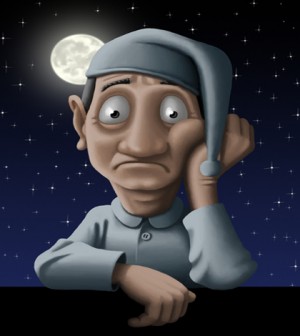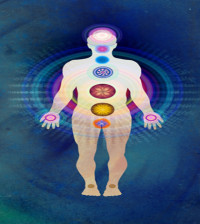- 5 Tips To Finding Peace Within Yourself
- The Do’s and Don’ts of Learning How to Accept Yourself
- How to Find Your Inner Peace and Transform Your Life
- 8 Benefits of Having an Open Mind and How to Get One
- Learn How To Be A Happier Person
- What Is The Meaning Of Life?
- Laws of Abundance – The Riches of Love and Joy
- How to Be Laid Back By Following These 9 Simple Strategies
- The meaning of confucius’ golden rule – 4 practical ways of living it
- 3 methods of unleashing the power of contentment in your life
What Can Cause Insomnia And How It Can Be Treated?

If you struggle to sleep at night, or lie awake watching the clock go round no matter how tired you feel, then chances are you could be suffering from insomnia. It is in effect a common problem that if not treated can take it’s toll on your mental and physical well-being. With this in mind, let’s take a look at what can cause insomnia and more importantly, how it can be treated…
Quality not quantity
One important point to remember is insomnia bears no relation to the amount of hours that a person sleeps, but instead it’s the quality of that sleep (or lack of) which determines whether you suffer from insomnia. For example, a person could well be getting 8 hours sleep every night, but if they are feeling fatigued or drowsy during the day, then they could be suffering from insomnia.
Manifestation of other underlying problems or issues
The reality is that insomnia in itself isn’t one single sleep problem. Instead it is more accurate to think of it as a manifestation of another issue or problem. It could well be that you are simply drinking too much caffeine, or it could be something of more concern such as feeling overwhelmed and stressed. Whatever it is, the good news is that in most cases it can be resolved with changes that you make, and without the need to rely on sleeping pills which simply mask the real and underlying issues.
Become a sleep detective
In order to solve your sleeping issues and to see what the real causes of insomnia are, you need to do a little detective work. How about asking yourself the following questions?
- Do you feel overly stressed or worried?
- Do you feel anxious or depressed for any reason?
- Have you in the past gone through any trauma?
- Are you taking any medications for other ailments which could affect your sleep?
- Are you eating large meals before you go to bed, or having excess caffeine in your diet?
- Do you have a regular sleep routine?
- Is your bedroom an inviting and comfortable space?
If you can pinpoint the problem or issue that may be causing your sleeplessness, then try making the changes yourself. That’s if it’s something fairly simple such as a change in diet, routine, or bedroom aesthetics. If you believe the issues to be a little more complex such as anxiety, depression, medical issues, or trauma, then you should contact a professional who can help you through your problems.
Temporary causes
Insomnia isn’t always a permanent fixture and can come and go. As a result, it can also be tied to temporary causes such as jet lag, an upcoming event or problem which you have to overcome, or a recent irregular sleeping pattern. In this instance a simple rectification of the issue should see you back on track.
Chronic Insomnia
In some cases insomnia is far more permanent and in this case is usually linked in to underlying psychological issues, possible long term medication, and medical problems. For these issues, then seeking advice from a professional, is paramount.
Insomnia cures
We’ve talked about some of the causes of insomnia, but what about some of the natural cures? Let’s take a look…
Taking on new sleeping habits
Why not try to make sure that your bedroom is a quiet sanctuary that aids restful sleep? Make it dark, keep it slightly cooler than other rooms in the house, add comfy pillows and bedding, remove clutter and add mood or dimmed lighting. In addition stick to a regular sleep pattern. Try going to bed and getting up at the same time every day, inclusive of weekends. This way your biological clock will get into a routine. Also try to avoid naps during the day. If you do have to take forty winks, then limit it to 30 minutes and try to take a nap before mid afternoon. Finally, avoid subjecting yourself to stimulating activity right before sleep time. This includes watching scary or action movies, rigorous exercise, arguments or lengthy discussions, or video gaming.
How Melatonin plays a big part
When it comes to your wake-sleep cycle, melatonin plays a large part in this. It is known to be produced in the brain and in effect helps the body to regulate your sleep patterns. When there isn’t enough melatonin produced, you may have difficulty sleeping. Stress and anxiety are known to lower melatonin levels and therefore when this happens, good sleep becomes problematic One proven way to boost melatonin levels sufficiently in order to aid restful sleep is by meditation. Even light meditation can ease stress and restore balance, which can in turn powerfully boost melatonin levels and therefore bring about a good night’s sleep.
Hopefully this has given you some of the answers to the question ‘what can cause insomnia’? The bottom line is to try and find the underlying issues. If you can do this and address the issues, then either by yourself or with some professional help your insomnia can be tackled and it doesn’t have to rule your life.








































You must be logged in to post a comment Login